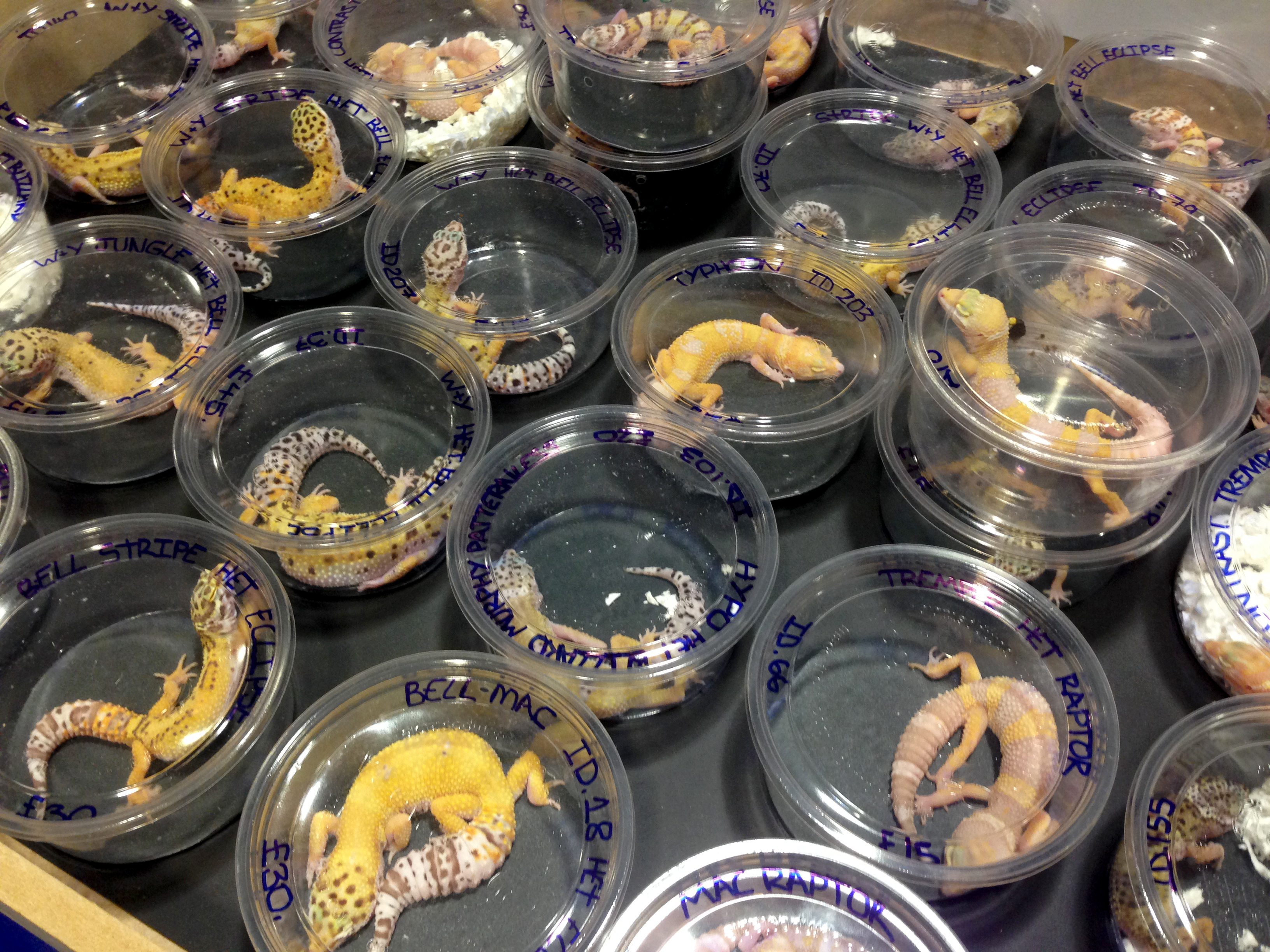New study reveals disturbing animal welfare issues and pandemic potential of pet reptile markets
These findings underscore the urgent need for better enforcement of UK legislation that prohibits the trading of pet animals over market stalls
A new scientific paper has shed light on the serious animal welfare problems and pandemic potential of reptile ‘expos’ - more commonly known in the UK as ‘reptile markets’, ‘reptile fairs’, ‘reptile breeders’ meetings’ or ‘reptile shows’. The comprehensive study published this week in the journal, ‘Frontiers in Animal Science’, covers reptile markets in Europe and North America. Based on their findings, the study authors recommend that existing bans be robustly enforced and in countries where reptile markets are not banned, stringent controls should be implemented until prohibitions are put in place.
Animal welfare issues highlighted in the study include the housing of reptiles in small, plastic containers where they are barely able to move and the routine deprivation of food, water and exercise for prolonged periods. There is little or no provision for environmental conditions such as controlled temperature, lighting, and humidity levels as well as a lack of substrate for burrowing and maintaining hygiene. Reptiles are also stressed by the noise, light, vibration, and repeated handling associated with being transported and sold at these events.
In addition, the study highlighted the potential for reptile markets to serve as breeding grounds for zoonotic diseases. Wildlife markets, including reptile markets, are increasingly condemned internationally for their animal welfare abuses and potential pandemic threats. Reptiles that are stressed are more likely to succumb to infection and to shed pathogens. The study explained that reptiles also potentially transmit viral diseases from ingested prey. These concerns are exacerbated by the fact that there is little or no quarantine or importation control for live reptiles.
Says lead author, Dr Clifford Warwick:
“Our study conducted a comprehensive and balanced analysis of reptile markets, which emphasised the highly negative implications and outcomes of such events. UK reptile markets were outlawed in the 1980s due to their unresolvable animal welfare issues. It is ironic, that while Far Eastern nations are clamping down on these events, having learned the lessons of inherent problems, the UK appears to be loosening up. That is a retrograde and disastrous strategy in the making.”
Says Elaine Toland, Director of Animal Protection Agency:
“These findings underscore the urgent need for better enforcement of UK legislation that prohibits the trading of pet animals over market stalls. We have been witness to the suffering of many thousands of vulnerable and sensitive reptiles at markets where they are treated very much as inanimate objects. Defra and local councils need to work together to end this practice for good.”
The Animal Protection Agency is working alongside World Animal Protection and Freedom for Animals to lobby Defra for improved guidance for local councils to aid better enforcement. They also forewarn venues and alert authorities to reptile markets wherever they surface, and then gather evidence for prosecution at markets that take place.
For more information, please contact Elaine Toland on 01273 674253 or out of hours on 07986 535024. Images available on request.
Press release distributed by Pressat on behalf of Animal Protection Agency Foundation, on Thursday 2 May, 2024. For more information subscribe and follow https://pressat.co.uk/
Animal Welfare Exotic Pet Reptile Market Reptile Expo Public Health Pandemic Wildlife Markets Environment & Nature Farming & Animals Government Health Leisure & Hobbies
Published By

01273 674253
info@apa.org.uk
https://www.apa.org.uk
kat@apa.org.uk
elaine@apa.org.uk
Visit Newsroom
You just read:
New study reveals disturbing animal welfare issues and pandemic potential of pet reptile markets
News from this source:



